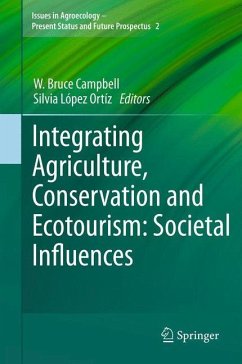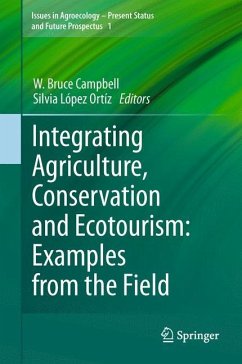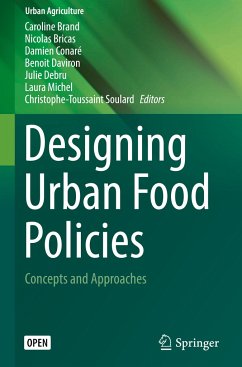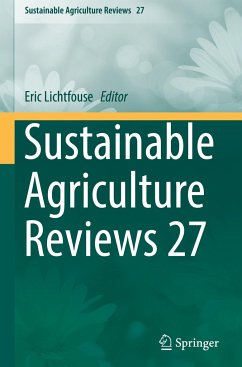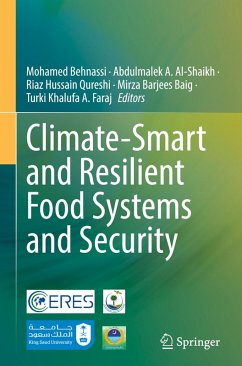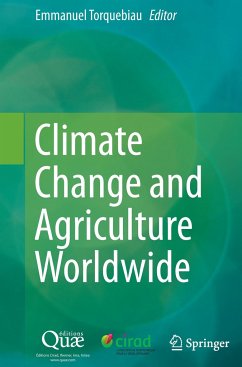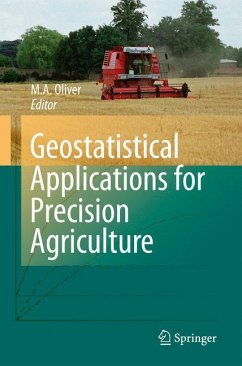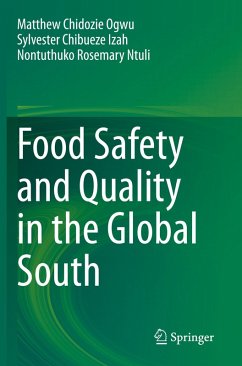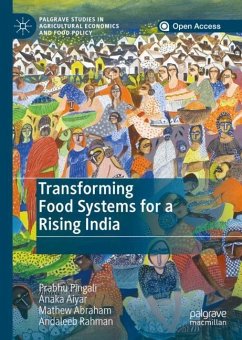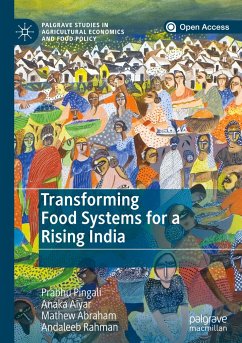
Climate Impacts and Challenges in Agriculture, Forests and Food Systems
Perspectives on the Global South
Herausgegeben: Blanfort, Vincent; Hrabanski, Marie; Demenois, Julien
Versandkostenfrei!
Erscheint vorauss. 4. Dezember 2025
42,99 €
inkl. MwSt.

PAYBACK Punkte
21 °P sammeln!
This is an open access book.Agri-food systems and forests significantly impact global climate change, they contribute to over one-third of greenhouse gas emissions, through among others deforestation and food supply chains. They are also vulnerable to climate change effects.These sectors have diverse capacities for adaptation and mitigation, which can be harnessed through aligned strategies. Food security and socio-economic issues highlight the need for climate-conscious food policies.This book examines the diversity of adaptation and mitigation strategies needed at multiple levels genetic, ag...
This is an open access book.
Agri-food systems and forests significantly impact global climate change, they contribute to over one-third of greenhouse gas emissions, through among others deforestation and food supply chains. They are also vulnerable to climate change effects.
These sectors have diverse capacities for adaptation and mitigation, which can be harnessed through aligned strategies. Food security and socio-economic issues highlight the need for climate-conscious food policies.
This book examines the diversity of adaptation and mitigation strategies needed at multiple levels genetic, agronomic, policy, trade, and finance to transform agriculture and food systems in response to climate change. Systemic, context-specific transitions are essential, considering diverse bioclimatic and socio-economic conditions. These include evolving dominant models, shifting diets, reducing waste, and re-localizing food systems.
Research plays a pivotal rolein guiding transitions, and this book compiles high-quality research for informed discussions.
Agri-food systems and forests significantly impact global climate change, they contribute to over one-third of greenhouse gas emissions, through among others deforestation and food supply chains. They are also vulnerable to climate change effects.
These sectors have diverse capacities for adaptation and mitigation, which can be harnessed through aligned strategies. Food security and socio-economic issues highlight the need for climate-conscious food policies.
This book examines the diversity of adaptation and mitigation strategies needed at multiple levels genetic, agronomic, policy, trade, and finance to transform agriculture and food systems in response to climate change. Systemic, context-specific transitions are essential, considering diverse bioclimatic and socio-economic conditions. These include evolving dominant models, shifting diets, reducing waste, and re-localizing food systems.
Research plays a pivotal rolein guiding transitions, and this book compiles high-quality research for informed discussions.



